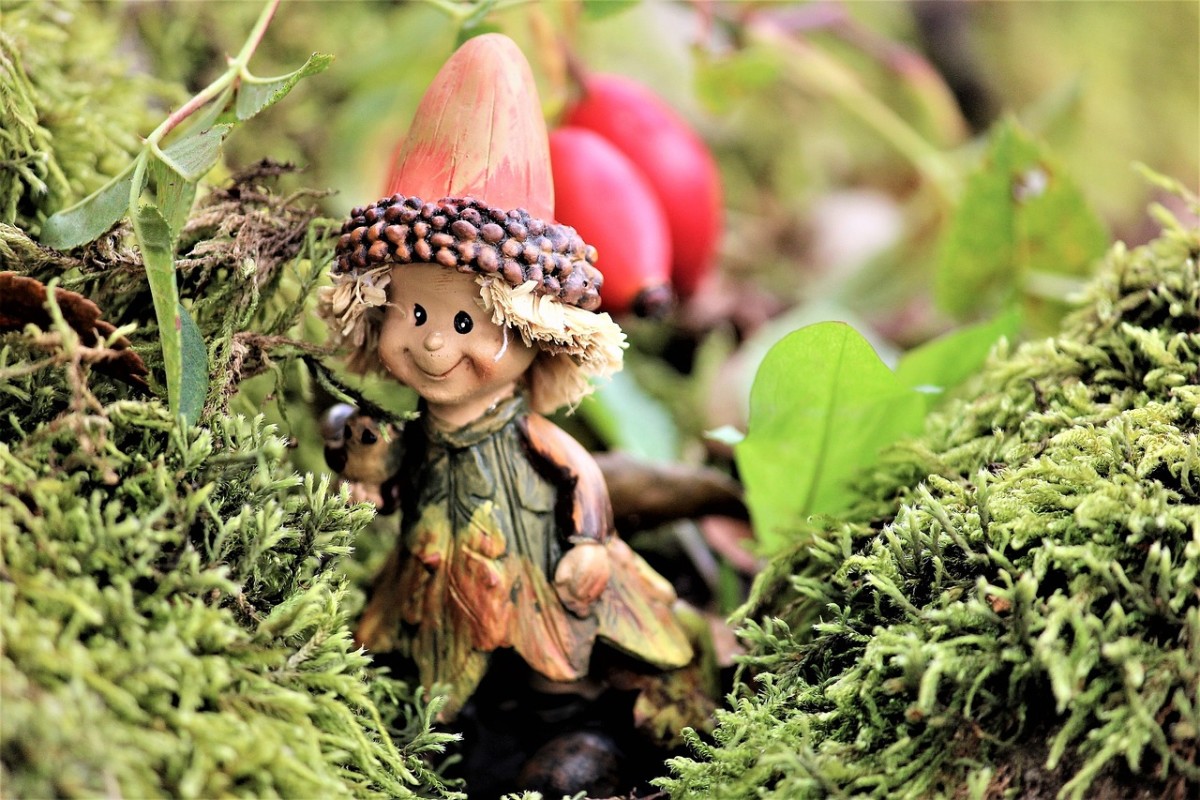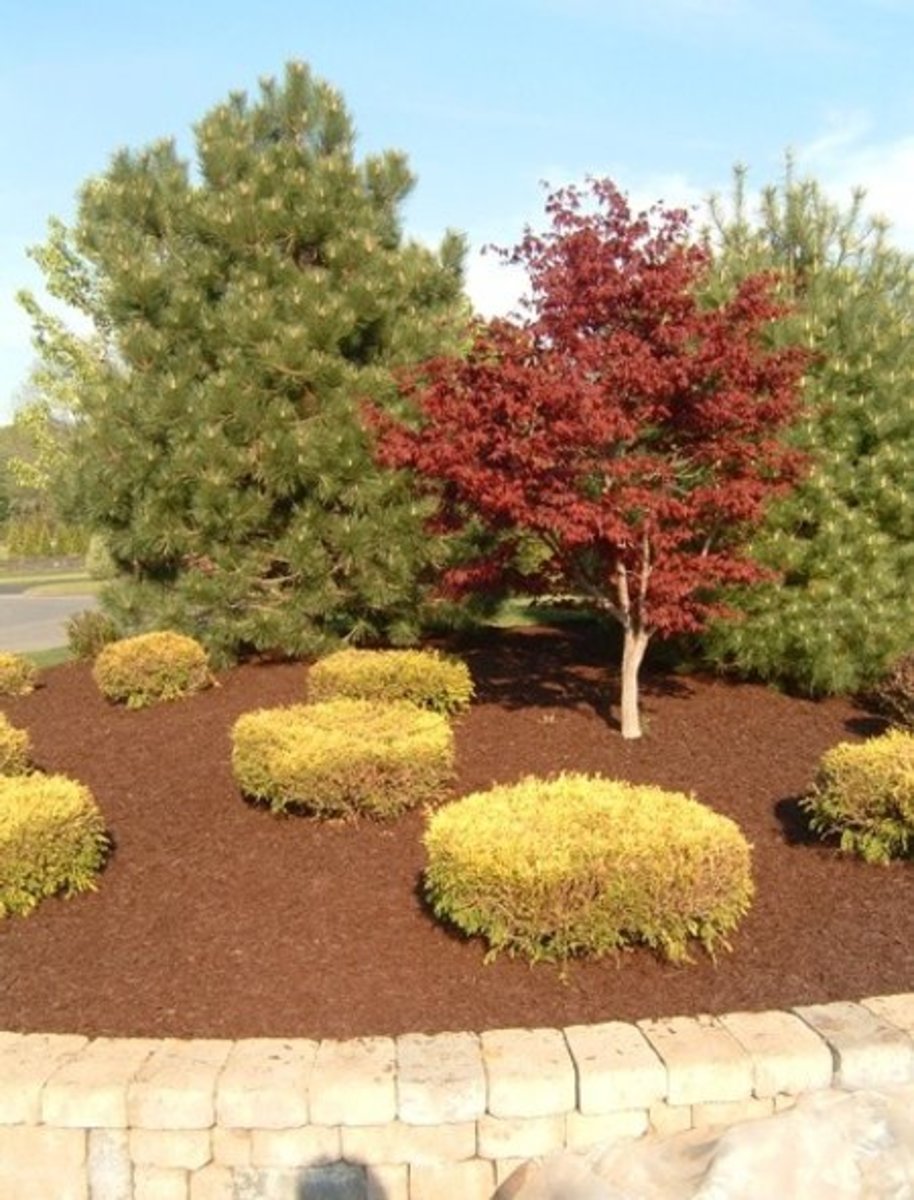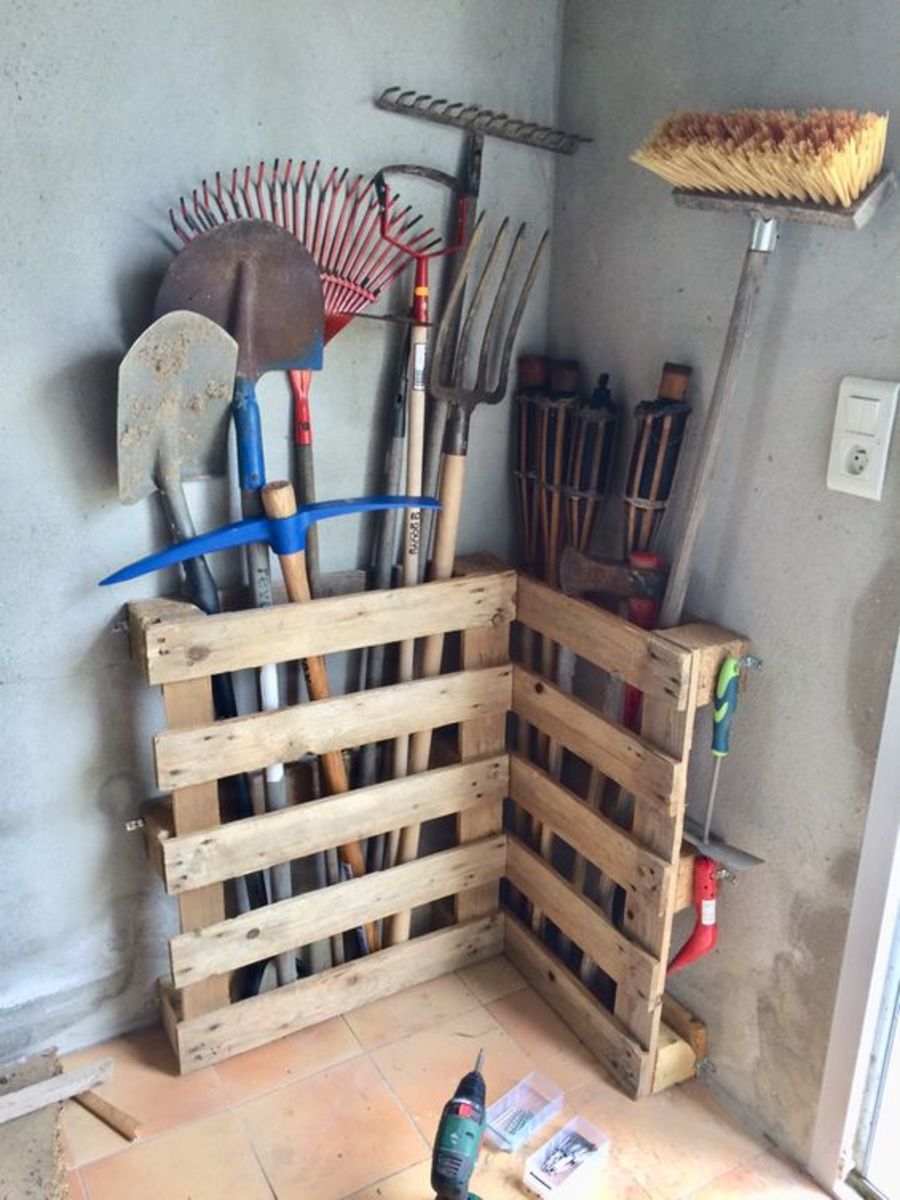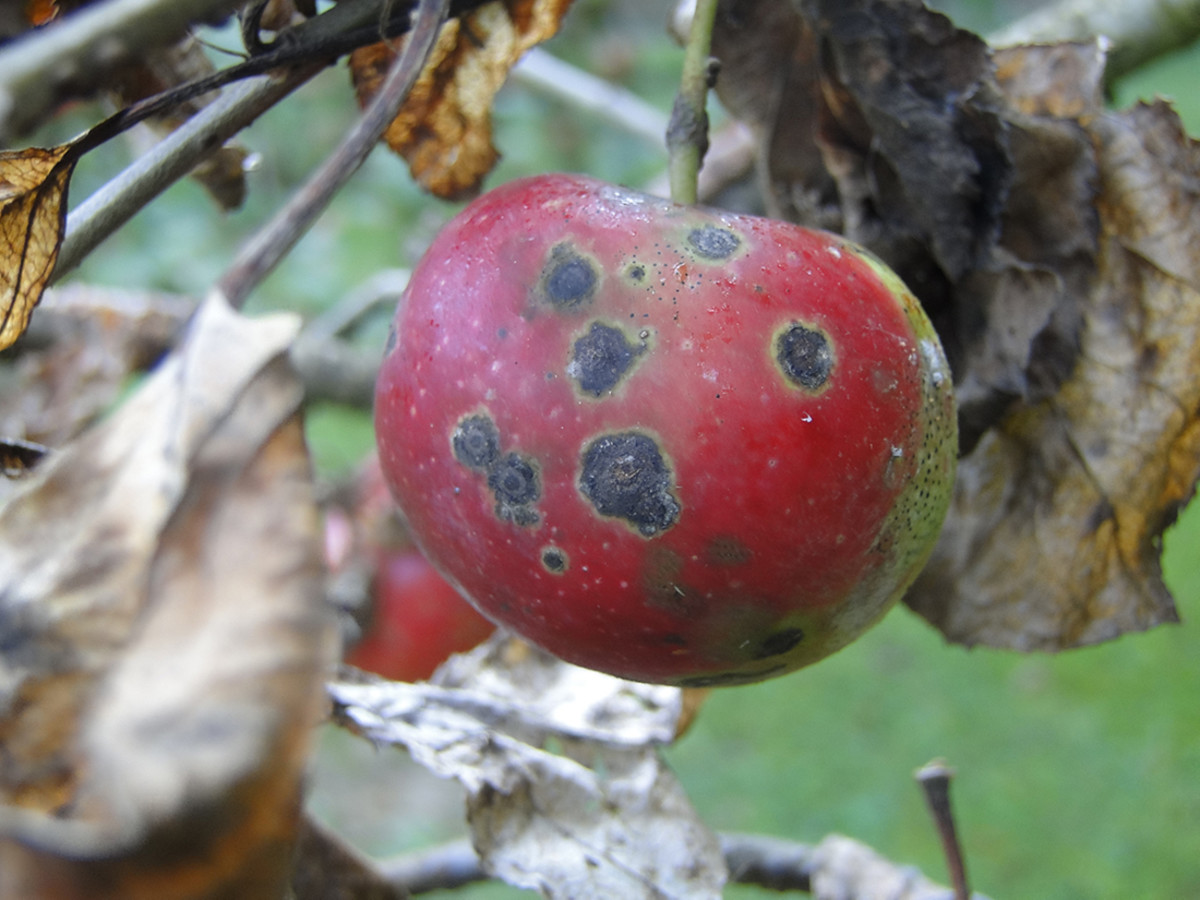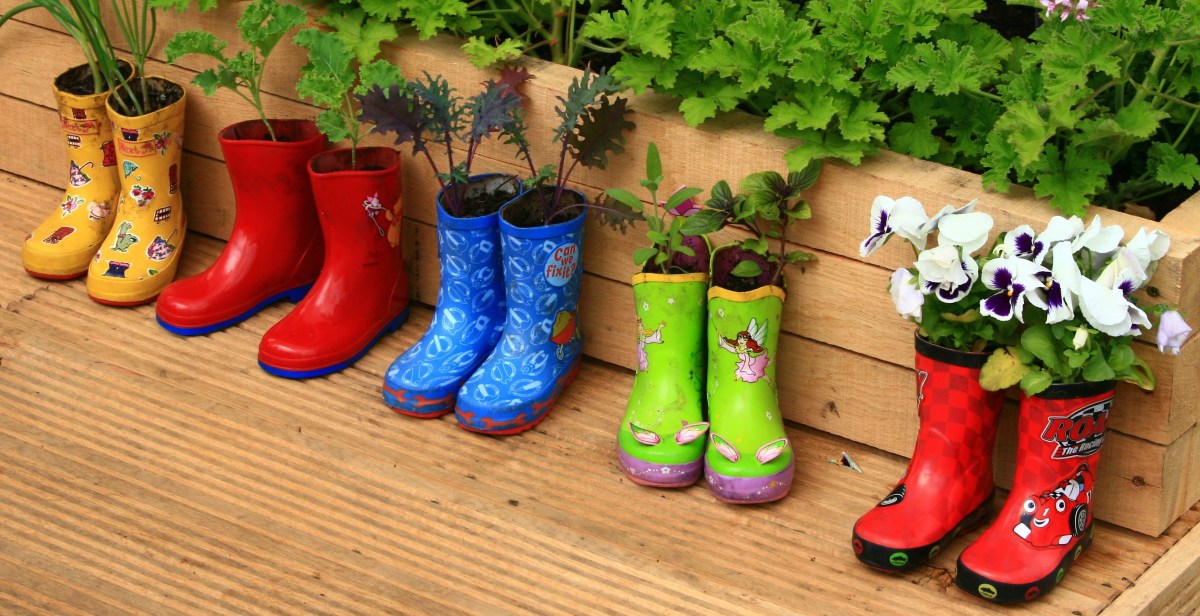Mulching Your Garden - Gardening Mulch
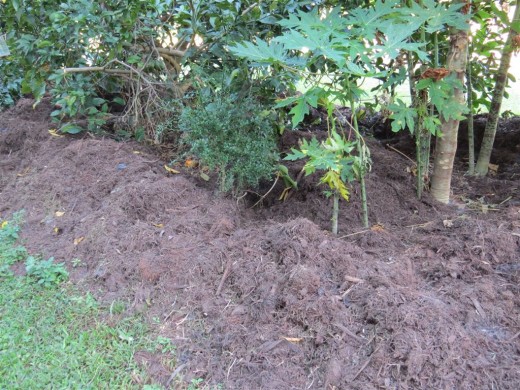
Mulching will provide your garden with many benefits and help it to become healthy and happy. In the following hub I will describe these benefits in more detail and help you with your mulch selection and techniques. You might not be aware of it but there are quite a few basic rules and tips that are associated with mulch and these hints will help you on your gardening way!

What is mulch?
Mulch is a top layer dressing that you apply over your garden beds, in and around your plants. Your garden beds could be vegetable gardens, tropical gardens, formal and informal gardens and even cactus gardens to name a few.

Why should I mulch my garden?
As I have previously stated, if you mulch your garden it will become healthy and happy. What do I mean by this? When mulch breaks down a whole host of organisms and bacteria are working away feeding off the mulch and in turn these organisms excrete or release nutrients which your plants will feed off. You can see some of these organisms like fungi or worms which are all little workers in your garden and are improving the soils. When your plants are feeding off these extra nutrients they are actually stronger and have a greater immunity to potential pests and diseases.
Mulch also acts as a barrier to prevent your soil drying out from the evaporation of water. In arid or dry countries, for example in Australia where most of the country is facing water usage restrictions, water is a valuable and limited resource. If you apply a thick layer of mulch to your garden you will save water, cut down your watering times and in turn save your time and money.
Mulch will also save you time in the garden from weeding. Some weeds will be tough enough to penetrate through your barrier of mulch however they will be easier to pull out because they will be in moister soil and the weed itself will have become taller than usual and thus weaker.
Mulch will actually improve the appearance of your garden. By this I am not just talking about the coloured mulches that have become popular in recent times. If you stand back and take a look at your garden when it isn’t mulched your eyes naturally look all over the garden bed. You will pick up on stray weeds, random fallen leaves and the plants in your garden bed. When you stand back and looked at a mulched garden bed it is more uniform, like a blanket has been placed over the garden bed and now your eyes concentrate on the plants themselves.

What types of mulch are there?
There are many different types of mulch. Your selection of mulch will be based on quite a few different situations. These situations could cover what mulch is available from your local area, what budget are you limited to and are you able to make your own mulch. I’ll list a few mulches available in my area, please feel free to share your experiences with mulch in your area by leaving a comment below.
Tea Tree Mulch – Tea Tree mulch is made from pulverized Tea Trees (melaleuca alternifolia). Tea Tree’s are farmed in Australia for their oils. Not all the oil can be extracted from the Tea Tree fines and it is this oil that makes this mulch great for a natural termite preventative in your garden. The oil in this mulch also makes it very fragrant. Although this mulch has good properties and lasts a long time in your garden it is the most expensive choice.
Pine Bark – Pine bark is made from chipping the off cuts and waste from the pine timber industry. Pine bark is good for areas where there are high winds because of its weight. The mulch as you would expect lasts a long time and is relatively inexpensive. Things to take care of with this mulch is that it will encourage termites into your garden and if you are mowing with a push mower near your garden you might accidentally create some ‘missiles’ by running over it. Pine bark has been revamped in recent years by being coloured. It’s amazing what colors you can choose from, but please note that these colours will fade with ultraviolet light over time.
Peanut Shell – Peanut shell is from the husk of Peanuts. It makes for light mulch and spreads well. However one thing to note about this mulch is that the wind can pick it up quite easily and if you live where you get a lot of rain then this mulch will also wash off your garden beds.
Forest Fines or Tropical Mulch – Forest fines or Tropical mulch is basically made from garden clippings which you take to your local tip. Your local council will contract for a company to gather truckloads of garden waste from your local tip and to process it further. It is generally put through industrial shredders and stockpiled. This stockpiling process will kill most of the weeds and unwanted organisms by naturally breaking down (Note it is this natural breaking down process which causes a heat reaction, which sometimes you will see as steam if you disturb a pile of mulch). This mulch is quite inexpensive and as an added bonus the company will deliver to your address and can usually pump the mulch directly to your garden beds, saving you heaps of hard work. This mulch is as close to as making your own mulch (see below).
Sugar Cane Mulch – Sugar Cane Mulch is made from the pulverized sugar cane stalks, and is called Bagasse in the sugar cane industry. Sugar cane mulch is quite fibrous and light which makes it easy to handle. This mulch is very good for placing in your vegetable gardens as an alternative to straw. In tropical areas where sugar cane is grown this material is quite abundant.
Stones/Gravel/Rocks – Believe it or not but stone, gravel or rocks can make for a mulch alternative. These types of mulches are good for cactus gardens or planter pots. You can get different coloured stones which will help with the overall appeal of your landscaping. These mulches will not break down but do actually help in the prevention of weed growth and water evaporation. They can be expensive but will last pretty much forever. One thing to note is that stone mulch will eventually sink into your soil over time and you may need to top up the stones. White or light colored stones will tend to gather mold or mildew, they look good when you first pour them in but may turn green over time. There are quite a variety of gravels, rocks and stones to choose from bauxite, volcanic quincan, river stone, crushed marble to name a few.
Your own mulch – If you have the equipment or time you can make your own mulch. This can be as simple as mixing a few of the mulches from above, for example if you mix pine bark mulch with peanut shell you will make a good combination and spread your costs. Other alternative is to purchase or hire a chipper or shredder and mulch the cuttings from your garden. This will save you a lot of money and the trips or delivery fees to and from your local raw materials produce centre. This type of mulch keeps your own nutrients in your own garden and you know exactly what is in your mulch.

What shouldn’t I do with my mulch?
- Don’t overwater your mulch. You can check to see if you need to water your garden after mulching by pushing a section of mulched area aside and checking to see if the soil is moist.
- Don’t choke your plants. Make sure you leave a hollow around the base of your plants as you might end up rotting or introducing extra bacteria/fungi to the base of your plants.
- Don’t put weeds or tuberous plants into your mulch. By doing this you might end up spreading plants or weeds throughout your garden. They will pop up all over the place. While I am the subject, try not to put seed pods through your mulcher for the same reason.
- Try not to inhale a freshly opened bag of mulch. You can buy mulch from supermarkets in plastic bags and these mulches are breaking down on the shelf. When you open a fresh packet a concentrated mix of bacteria and particles will become airborne and may enter your lungs. This can cause you health problems so please be careful. Once the mulch is spread and watered down your exposure will be greatly reduced and your immediate environment will be safer to garden in.
- Don’t spread your mulch too thinly. Try to spread the mulch in a layer at least 10cm or 4 inches thick. This layer will help prevent weeds popping up through the mulch and will also reduce the amount of times that you have to reapply the mulch.
- Don’t put weed matting under your mulch. Weed matting can be in the form of plastic sheet, woven hessian or woven shade cloth (plastic). This material will counteract the benefits of adding nutrients to your garden. If it rains heavily your mulch will also slide off this weed matting. Weed matting should only really be used if you have farming techniques which require it, like planting fields of strawberries etc or for areas where weeds are a major problem. Weed matting was once popular, but hopefully this technique has been ‘weeded out’ (pardon the pun).
- Try not to use mulches that are heavily fertilized or contain a lot of chemicals. For example if you have a pine tree which drops heaps of pine needles then I’d refrain from using those pine needles for mulch. The pine needles contain a lot of natural oils. (Tea tree on the other hand has most of its oils extracted). You can see that pine needles probably won’t make for good mulch as not many other plants or shrubs grow around the base of a pine tree. If you are going to use pine needles as mulch you are probably best stock piling the needles and making a compost heap, leave this mulch for a period of time until the oils have leeched out of the needles. You can test this by getting a bunch of needles and breaking and squeezing them in your hands. If the results are dry then the pine needles would be ready to use. Also it goes without saying that you shouldn’t use straight manure as mulch, this will kill the plants with over fertilizing them. Instead consider mixing you manure in your compost heap and building up your garden beds when you require.

All mulched up?
Hopefully I have given you a few tips and ideas to help you out in the garden and have given you some inspirations on how to mulch your garden. If any of these ideas don’t work in your area then don’t be afraid to ask your local nursery for advice. If anything you might have to try a few different mulches to see what works best for you. Good luck and happy gardening!


